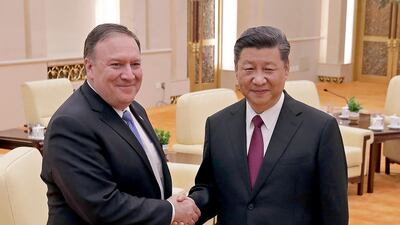Donald Trump has made up his mind to impose “pretty significant” tariffs on Chinese goods, an administration official said on Thursday, as Beijing warned that it was ready to respond if Washington chose to ratchet up trade tensions.
Mr Trump is due to unveil revisions to his initial tariff list targeting $50 billion of Chinese goods on Friday. The list will contain 800 product categories, down from 1,300 previously, according to another administration official and an industry source familiar with the list.
He no longer believes that Beijing’s influence over North Korea is a compelling reason to ease up on trade talks now that his administration has opened up a direct line of communication with the nuclear-armed country, the first administration official said.
Treasury secretary Steven Mnuchin argued against imposing the tariffs at a White House meeting on Thursday but he was not expected to prevail, the official said.
The Chinese government’s top diplomat, State Councillor Wang Yi, said his country was prepared to respond if Mr Trump went ahead with the tariffs.
Speaking to reporters in Beijing, with secretary of state Mike Pompeo at his side, Wang said there were two choices when it came to the trade issue.
“The first choice is cooperation and mutual benefit. The other choice is confrontation and mutual loss. China chooses the first,” Wang said. “We hope the U.S. side can also make the same wise choice. Of course, we have also made preparations to respond to the second kind of choice.”
The move toward imposing tariffs on Chinese goods follows negotiations between officials from both countries centred on increased purchases by Beijing of American farm and energy commodities and cutting the US trade deficit with China.
Commerce secretary Wilbur Ross this month met Chinese officials in Beijing and brought back a Chinese proposal to buy around $70 billion worth of additional commodities and manufactured goods. But that offer has not been accepted by the president, people familiar with the matter said.
Wang said the two countries had agreed to use “constructive means” to handle disagreements.
Pompeo said the US deficit with China was still too high, but that they had good talks.
“I stressed how important it is for President Trump to rectify that situation so that trade becomes more balanced, more reciprocal and [fairer], with the opportunity to have American workers be treated fairly,” he said.

